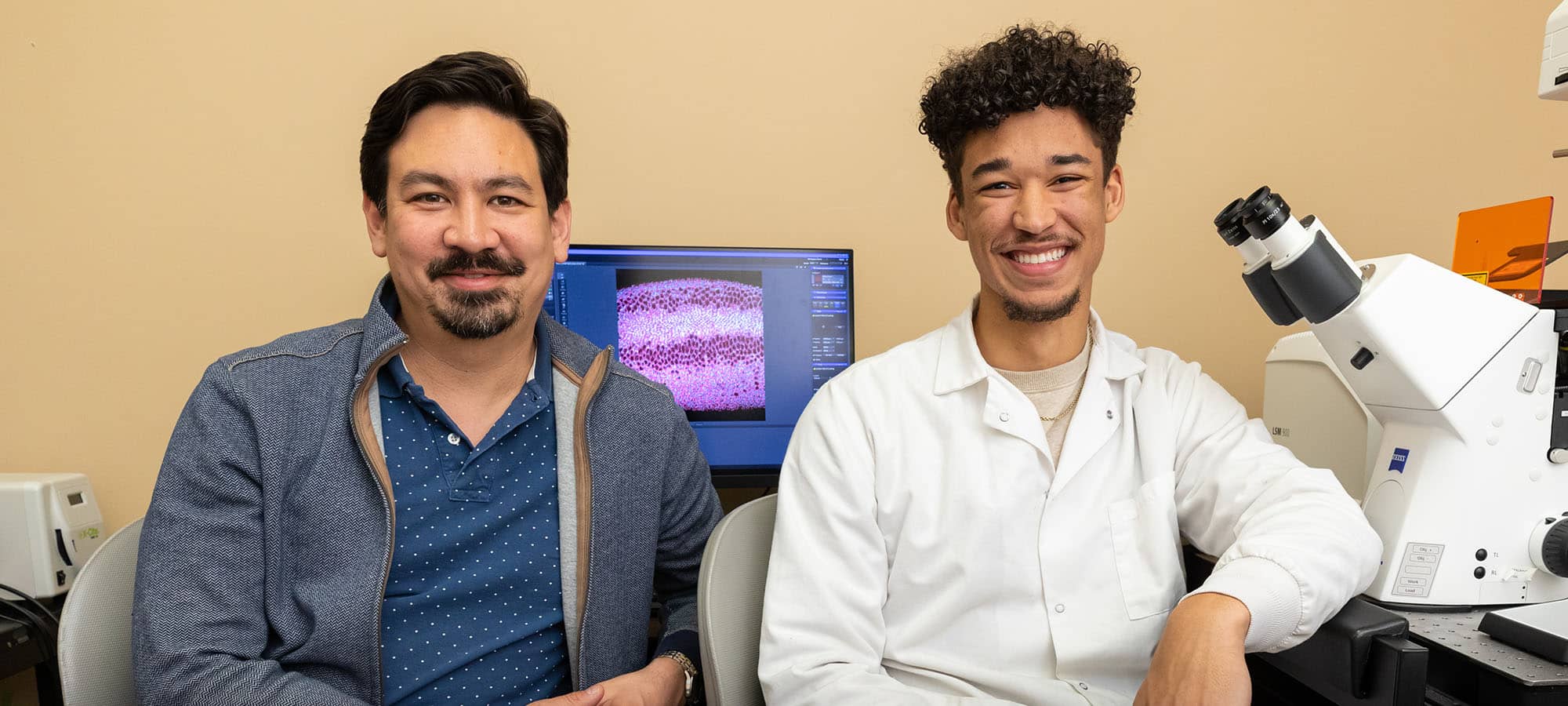
Gary Jackson in Action
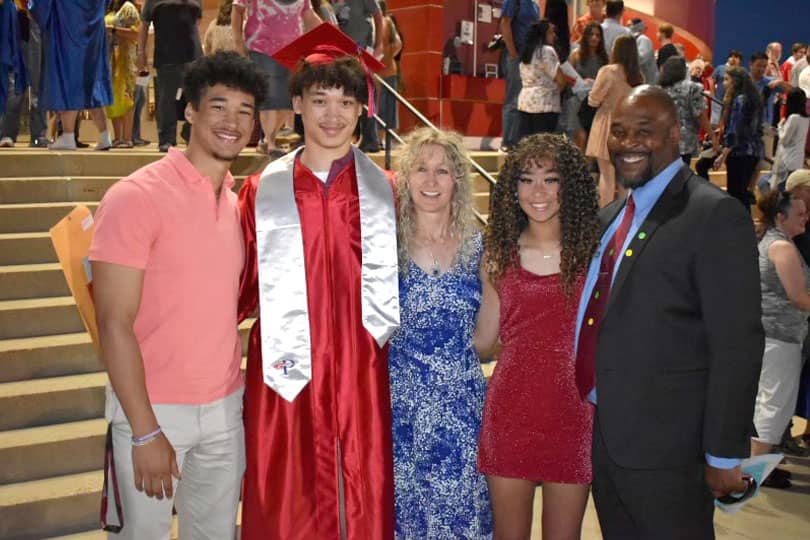
When Gary Jackson was in the fifth grade, his father suffered a traumatic injury that resulted in a stay in the ICU. Jackson vividly recalls this childhood memory, which left him feeling helpless and distraught.
“I saw my dad at his weakest,” he says. “And it made me realize that relationships were what mattered most in life.”
That experience stuck with Jackson, who grew up in the town of Pocahontas, a community of about 5,000 people in northeast Arkansas. After graduating high school, he knew what he wanted his next step to be – studying biology at the University of Arkansas so he could change lives through medicine.
“The doctors and nurses who treated my dad helped him come home,” he says. “Because of that, I knew I wanted to be a pre-med kid. I’m passionate about helping people.”
Be the Change
Jackson has found plenty of ways to help since he came to the university. He’s involved with several campus organizations, including the Associated Student Government, the RSO Students with Refugees and the Volunteer Action Center.
“As soon as I got here, I started to get involved,” he says.
Still, Jackson noticed that some of his peers were struggling to find how they, too, could give back in ways that would be meaningful. So, he joined the student recruitment team for the Volunteer Action Center to help build awareness for all the opportunities on campus.
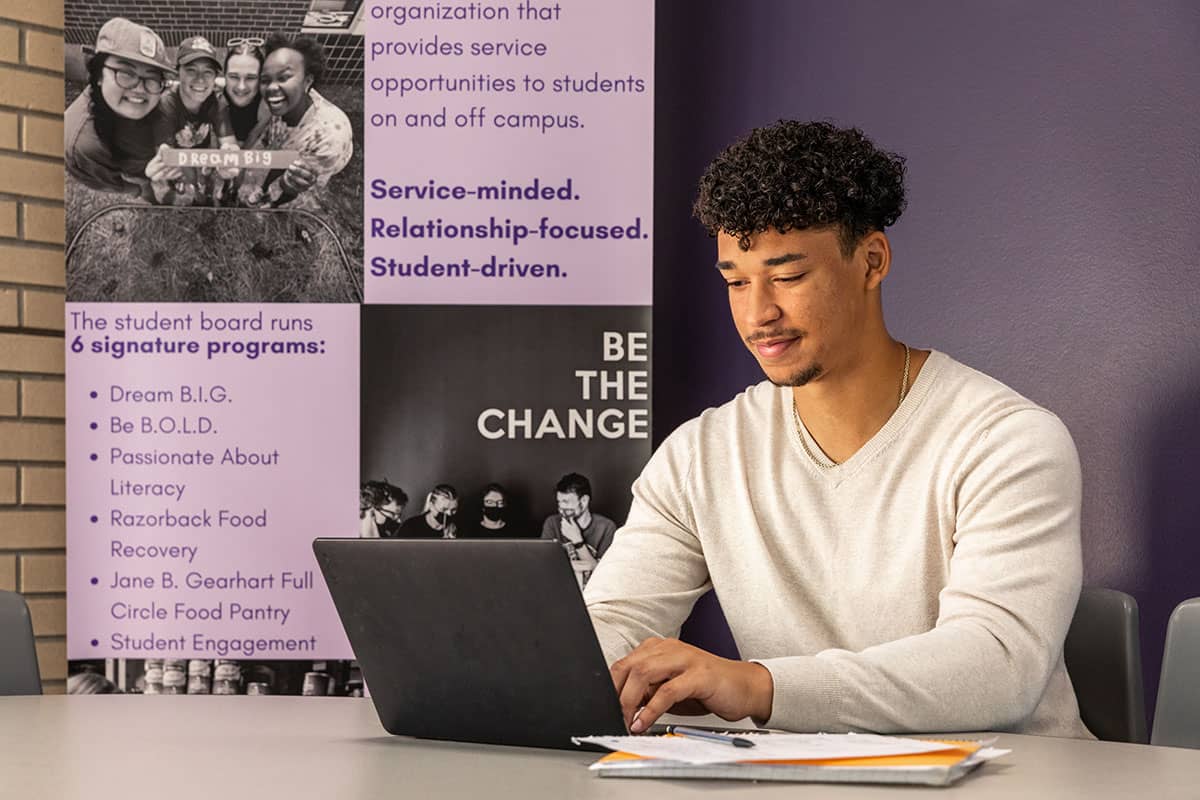
The Volunteer Action Center, or VAC, is one of his favorite organizations, because it has fostered his involvement with the Jane B. Gearhart Full Circle Food Pantry, the Razorback Food Recovery program and literacy and mentoring programs. It’s also introduced him to like-minded peers who ache to make a difference in their community.
“We are individuals who are passionate about creating change and have united for a greater good,” he says. “These are individuals who want to be the change, and it’s inspiring.”
Life-Minded
Joining an organization is one thing, but taking action is another. Jackson says he has always wanted to be remembered as someone who helped others, but this notion of leaving a legacy has morphed into a mission instead: “I want to put action behind it.”
During his junior year, Jackson organized an enormous blood drive on campus, something he described as “the chance to save lives.” Inspired partially by his father’s hospital experience, which involved multiple blood transfusions, Jackson wanted to remind students why it was important to give blood and rally everyone behind a common cause. His favorite part of the experience was working with multiple offices on and off campus to coordinate the effort, including the Pat Walker Health Center, the Red Cross, University Recreation, Athletics and other community organizations.
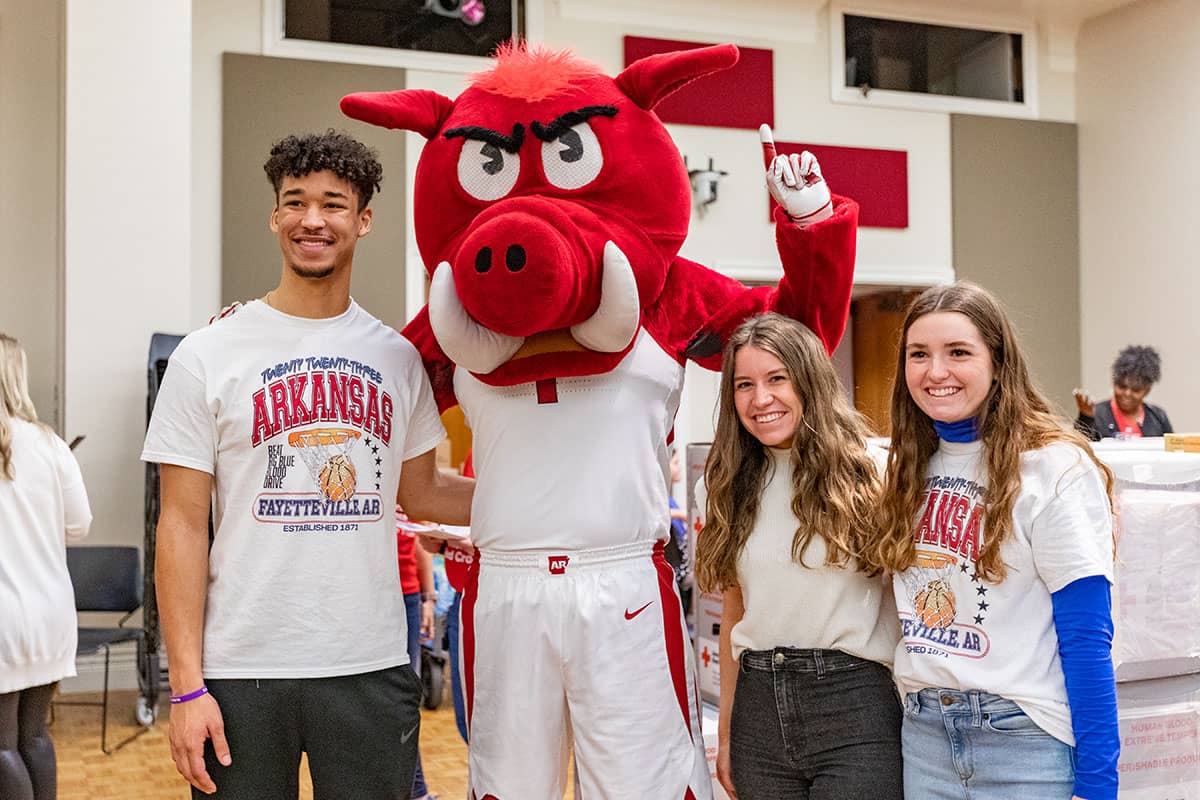
The “Beat Big Blue Blood Drive” – named in recognition of the Arkansas vs. Kentucky basketball game that coincided with the event – resulted in 879 donor visits and 747 units collected. Of those donors, 64% were first-timers, and several said they enjoyed their donation experience so much that they hoped to become habitual or lifetime donors. With the number of units collected, approximately 2,250 lives could be saved.
 The “Beat Big Blue Blood Drive” that Jackson helped organize was the campus’s largest
blood drive in the last 10 years.
The “Beat Big Blue Blood Drive” that Jackson helped organize was the campus’s largest
blood drive in the last 10 years.
“This was, by far, the coolest thing I have ever done,” Jackson says. “To walk in on the first day and see lines and lines of people wanting to help was something I’ll never forget. My favorite thing was hearing from donors and volunteers alike about how happy they were to be a part of this drive and their personal stories about how donating blood meant a lot to them.”
Top of the Class
Jackson has gone from a high school student in a small town of 5,000 to a leader on a campus of more than 35,000 students, faculty and staff. And, despite the size difference, he says he still maintains a first-name basis with many of his professors.
“I’ve enjoyed my classes even more than I expected. You’re not just a number,” he says. “They really want to help students in any way. They’ll help you find the best version of yourself.”
Adnan Alrubaye, assistant professor of poultry microbiology and associate director of the Graduate Program in Cell and Molecular Biology, taught Jackson’s general microbiology class and says, out of a class of more than 400 students, Jackson stood out.
“He was one of the top students in the class,” Alrubaye says. “We would meet from time to time, and I would give him advice. He’s just a fine young man, and it’s a pleasure to have him here on campus. He isn’t just focused on academics – he’s trying to make this a better campus every single day through volunteering.”
Jackson volunteers his time in Alrubaye’s lab, where he learns about bacterial diagnoses and general microbiology techniques, but he also conducts his own research with his thesis advisor, Adam Paré, an assistant professor in the Department of Biological Sciences.
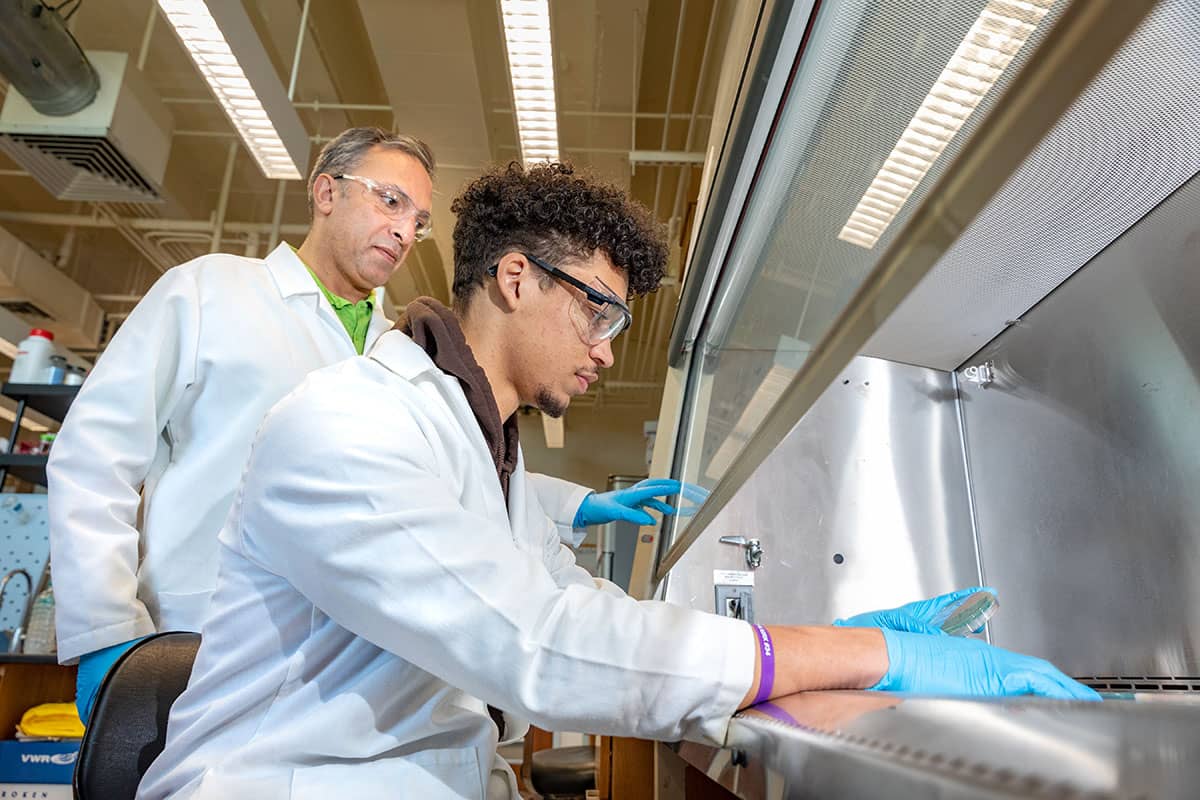
In Paré’s lab, Jackson uses fruit fly (Drosophila) embryos to study how animals develop from a single cell into a complex organism. In particular, Paré’s research focuses on how sheets of cells––known as epithelia––organize and communicate with one another during embryonic development, which has many connections to wound healing and cancer formation.
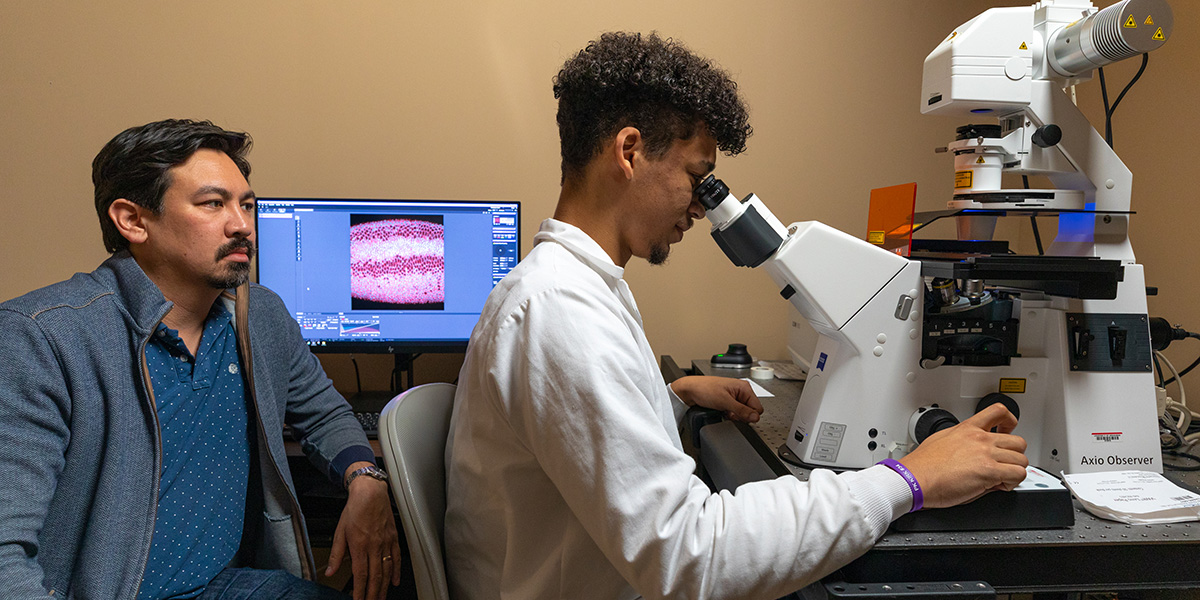
“Most cancers are epithelial in nature,” Paré explains. “Cancer cells often detach from a sheet and then crawl away to metastasize. We hope that by studying epithelia in relatively simple organisms like Drosophila, we will better understand what has gone wrong during cancer formation.”
Jackson has been involved with Paré’s lab since September 2022 and made quite an impression during the interview process.
“He’s a very quick study,” Paré says. “I was super impressed. This is high-level, complex research, but he asked great questions from the very beginning.”
After graduation, Jackson plans to enroll in medical school, where he may pursue his love for orthopedics. He’s already shadowed hundreds of hours as an undergraduate and says being able to help people improve their lives is what he’d love to do with his. He’d also love to stay in Arkansas.
“I want to inspire people and help others to believe in themselves,” he says. “And I can especially do this in Arkansas. It’s home for me.”